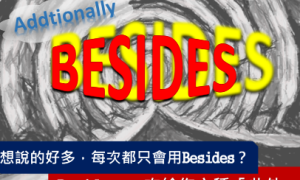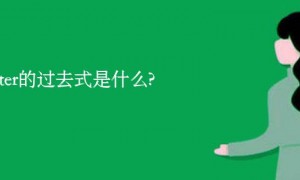besides, also, as well, either, moreover, too
这组词(组)都有“也,此外,还有”的意思。它们的区别是:
also一般用于肯定句,有强调意味,位于主谓语之间,即实义动词之前,助动词之后; too只用于肯定句中,一般位于句末,比also更口语化; either一般只用于否定句,多位于句末; as well和too一样多用于口语,放在句末; besides与moreover词义基本相同,但moreover后面所叙述的,通常比前面所叙述更为重要或更深入一步,在词序方面, moreover往往用于句首,另外, moreover是较为正式的用语。例如:
He also asked to go.他也要去。
I can also do it.我也能干那个活。
English is not easy, and French is not easy either.英语不容易,法语也不容易。
He is a teacher, and a writer as well.他是个教师,也是个作家。
I don't like those shoes; besides, they're too expensive.那双鞋我不喜欢,而且也太贵。
I don't like skating; moreover, the ice is too thin.我不想去溜冰,再说冰层也太薄。
The Opposition have consistently accused the Government of corruption.Moreover, they have named names.反对党一直在指责政府腐败,而且是指名道姓的。
besides, apart from, except (for)
这组词语都可译为“除了”,但含义并不相同:except (for)表示排除意义,即“除了…别无”; besides表示补充意义,即“除了…尚有”;而apart from 则既表示排除意义,又可以表示补充意义。
besides,but,except,except for
这些前置词或短语都含“除……之外”之意。
besides着重于指另外还有。
but侧重指不包括在内。
except侧重于排除在外,从整体里减去。可与but换用,但语气较强。
except for多用于在说明基本情况或对主要部分加以肯定,还引出相反的原因或细节,从而部分地修正前面的主要意思,含惋惜意味。










